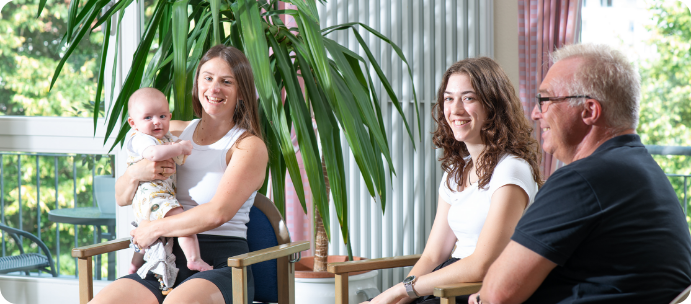
BEHAVIOURAL THERAPY IN INDIVIDUAL AND GROUP THERAPY
AT THE VERUS BONIFATIUS CLINICBEHAVIOURAL THERAPY IN INDIVIDUAL AND GROUP THERAPY
Behavioural therapy is a type of psychotherapy. While most therapies actively try to influence and optimise ways of thinking or actions of the person concerned, behavioural therapy tries to show patients methods that can help them cope with psychological or emotional problems and ultimately motivate the person concerned to help themselves.


INDICATIONS FOR BEHAVIOURAL THERAPY
According to the current state of research, mental stress or illness can also develop through repeated, incorrect behaviour on the part of the patient. With the benefit of this knowledge, the therapists and psychologists at our clinic try to help sufferers acquire new attitudes and behaviours. Among other things, these can help to combat eating disorders or anxiety and boost patients’ self-confidence. Nevertheless, this type of therapy requires extensive active cooperation from the patient. It therefore only makes sense when the person concerned is ready to actively deal with his or her own personality and to work on the problems that arise.

HISTORICAL REVIEW

The origin of behaviour therapy can be dated back to the beginning of the 20th century. It is based on the ideas of behaviourism, which clearly influenced psychology at that time. Its focus is on the observable behaviour of people and strives to be able to study this objectively. Another decisive milestone is classical conditioning, the results of which can be traced back to the Russian psychologist Ivan Pavlov. Thus, it is assumed that those affected can react to certain stimuli with certain reactions and can also learn these reactions. Thus, it is assumed that those affected can react to certain stimuli with certain reactions and can also learn these reactions. In the 1970s, however, behaviour therapy was once again expanded to include new aspects. These additionally assume that thoughts and feelings can also influence a person’s behaviour. The therapy, expanded to include this aspect, accordingly tries to recognise and change previous ways of thinking.

EVIDENCE OF BEHAVIOURAL THERAPY
Behavioural therapy is one of the best researched psychotherapies. It also shows very good effects. This effectiveness can be seen – depending on the extent of the disease – after only a few weeks. It can be assumed that the high effectiveness and the associated low relapse rate are due to the content of the therapy. Working out new patterns of behaviour or thinking acts as a kind of self-help or self-control for those affected. Because cognitive behavioural therapy can be adapted to the individual needs of the patient, the results are very sustainable, especially in cases of psychological stress, such as anxiety or eating disorders, post-traumatic stress and compulsions.
You need to load content from reCAPTCHA to submit the form. Please note that doing so will share data with third-party providers.
More Information